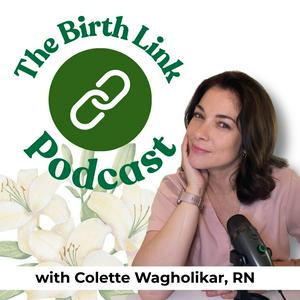What is a nurse to do?! Listen in with Cassandra Koblitz RN, the founder of Hakuna Matata Mamas, a labor and delivery nurse plus hospital birth coach with 13 years of experience supporting women through pregnancy, birth, and postpartum. She has worked in high-risk labor units across the country and has supported thousands of hospital births. Here's what she knows: hospital birth can be beautiful—but only if women are truly prepared for what’s coming.
That’s where Hakuna Matata Mamas comes in. Through her coaching she helps moms feel calm, courageous, and emotionally steady as they get ready to meet their baby.
What sets her apart is that she goes far beyond birth plans and breathing techniques. She helps women understand how the hospital system actually works, teaches their partners how to advocate, and guides them in building the emotional resilience to handle whatever path birth takes.
In this conversation, Colette Wagholikar and Cassandra Kolbuts discuss the challenges and importance of patient education in the context of hospital births. They share personal stories and insights from their experiences as labor and delivery nurses, emphasizing the need for women to be empowered and informed about their choices during childbirth. The discussion covers the roles of partners, the impact of social media on birth education, and the importance of mindset and preparation for a positive birth experience.
Takeaways
Women often leave the hospital feeling traumatized by their birth experience.
Education and preparation are crucial for a positive birth experience.
Patients should feel empowered to ask questions and voice their preferences during labor.
The role of partners is vital in supporting women during childbirth.
Mindset plays a significant role in how women perceive their birth experience.
Social media can both help and hinder birth education.
Women should not just go with the flow but actively participate in their birth plan.
Understanding medical interventions is essential for informed decision-making.
Nurses and doctors need to respect the birthing process and the women involved.
Preparation for childbirth should start as early as possible.
Find Cassandra at:
IG: https://instagram.com/hakuna.matata.mamas
Website: https://hakunamatatamamas.com
Keywords: birth education, patient advocacy, labor and delivery, hospital birth, empowerment, mindset, patient rights, birth trauma, nursing, maternal health


